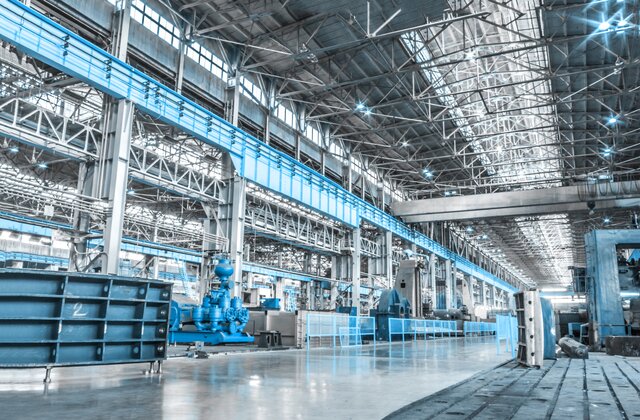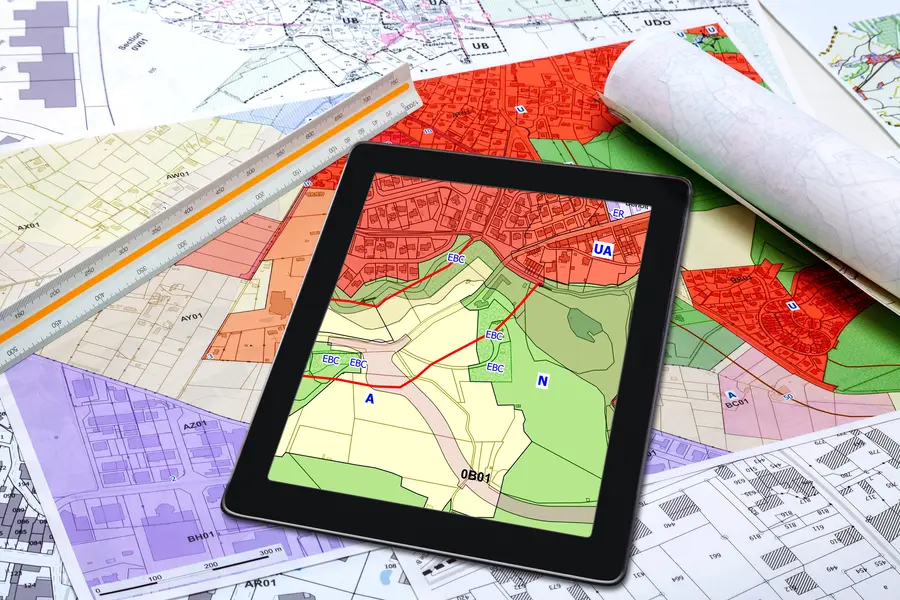Welcome to the topic “Industrial Real Estate Property Chicago: A Booming Sector“
The Windy City, known for its rich history, iconic skyline, and diverse economy, is also emerging as a focal point in the thriving sector of industrial real estate. As businesses adapt to changing consumer demands and supply chain dynamics, the demand for industrial real estate properties in Chicago is on the rise. In this in-depth article, we’ll explore the factors driving the growth of industrial real estate in Chicago, analyze key submarkets, and discuss the potential opportunities for investors in this burgeoning sector.
Understanding Industrial Real Estate
Before delving into Chicago’s industrial real estate landscape, let’s establish a fundamental understanding of the sector. Industrial real estate encompasses properties such as warehouses, distribution centers, manufacturing facilities, and industrial parks. These properties serve as the backbone of the supply chain, facilitating the storage, production, and distribution of goods.

It plays a crucial role in supporting the global supply chain, making it a critical component of the economy. This specialized sector differs significantly from retail/ office commercial or residential real estate in terms of location requirements, building specifications, and leasing dynamics.
Industrial properties are strategically situated near transportation hubs, such as ports, highways, and airports, to facilitate the efficient movement of goods. They come in various forms, from warehouses and manufacturing plants to data centers and flex spaces. Investors and businesses involved in industrial real estate must grasp the complexities of lease structures, tenant demands, and the impact of technological advancements, like automation and e-commerce, which continue to shape the industry.
Chicago’s Strategic Location for Industrial Real Estate
A Hub of Transportation
Chicago’s geographical location is one of its most significant assets in the industrial real estate arena. Often referred to as the “Transportation Capital of America,” the city boasts an extensive network of highways, railways, and waterways. This unparalleled connectivity positions Chicago as a strategic hub for goods movement, both domestically and internationally.
Proximity to Major Markets
Chicago’s proximity to major consumer markets, including the Midwest and the East Coast, is another compelling factor. Companies seek to establish a presence in the city to reduce transit times and transportation costs. As a result, Chicago has become an ideal location for distribution centers and last-mile delivery facilities.
E-commerce Boom and Changing Consumer Habits
The E-commerce Revolution
The surge in e-commerce activity has been a game-changer for industrial real estate. The pandemic accelerated the shift towards online shopping, creating an unprecedented demand for distribution and fulfillment centers. In Chicago, e-commerce giants and retailers have been actively expanding their footprint to meet this demand.
Last-Mile Delivery Focus
The concept of last-mile delivery, the final leg of the delivery process from a distribution center to the consumer’s doorstep, has gained prominence. Companies are strategically locating warehouses closer to urban centers to ensure quicker deliveries. This trend is evident in Chicago’s submarkets, where industrial properties near the city center are in high demand.
The Role of Infrastructure Investment
Investments in Infrastructure
Chicago’s industrial real estate growth is closely tied to infrastructure investments. The city and the state of Illinois have made substantial commitments to improve and expand transportation infrastructure. These investments not only enhance the efficiency of goods movement but also make the city an even more attractive destination for businesses in need of industrial space.
Key Submarkets in Chicago’s Industrial Real Estate Sector
O’Hare Airport Area
The vicinity around O’Hare International Airport is a prime location for industrial real estate. With the expansion of e-commerce operations and the need for efficient air freight logistics, this area has seen a surge in demand for modern distribution centers and warehouses. Proximity to the airport allows for rapid connectivity to global markets.
South Suburban Markets

The southern suburbs of Chicago offer abundant land and competitive pricing, making them an attractive choice for industrial developers and investors. Companies seeking large-scale distribution centers with ample parking and maneuvering space find the South Suburban markets appealing.
I-80 Corridor
The Interstate 80 corridor, stretching southwest of Chicago, is a hotbed of industrial real estate activity. This region’s strategic location offers easy access to multiple major highways, facilitating the transportation of goods across the country. It has become a focal point for distribution and logistics operations.
Near North Side and West Loop
Chicago’s Near North Side and West Loop areas are experiencing a transformation in the industrial real estate landscape. As e-commerce and last-mile delivery gain prominence, developers are repurposing existing properties and vacant land to meet the demand for urban logistics facilities. This adaptive reuse of space is redefining these neighborhoods.
Investment Opportunities
Earning Stable Returns
Investors in Chicago’s industrial real estate sector have the opportunity to earn stable returns, thanks to the sector’s resilience and the city’s strategic location. Rental income from warehouses and distribution centers often provides a steady cash flow, making it an attractive investment option.
Value-Add Opportunities
Value-add opportunities exist for investors who are willing to renovate and modernize older industrial properties. By upgrading facilities to meet current standards and demand, investors can enhance the long-term value of their assets.
Diversification and Portfolio Growth
Industrial real estate can serve as a diversification strategy for investors looking to balance their portfolios. Its performance is often less correlated with other asset classes, such as office or retail properties, making it a valuable addition to an investment portfolio.
Challenges and Considerations
Environmental and Zoning Regulations

Investors should be mindful of environmental regulations and zoning requirements when acquiring industrial properties. Older facilities may require remediation to meet environmental standards, and zoning laws can impact the use and development of industrial land.
Market Competition
The strong demand for industrial real estate in Chicago has led to increased competition among investors. Securing prime properties at competitive prices can be a challenge, and investors must conduct thorough due diligence to identify opportunities.
Conclusion
Chicago’s industrial real estate sector is on a robust growth trajectory, fueled by its strategic location, e-commerce boom, and infrastructure investments. Investors and developers are capitalizing on the city’s appeal as a logistics and distribution hub. As the global economy continues to evolve, industrial real estate property in Chicago offers a compelling investment opportunity for those seeking stability, growth, and a foothold in a thriving sector.
However, it’s crucial for investors to approach this market with a well-informed strategy, considering factors such as submarket dynamics, regulatory considerations, and value-add potential. In the dynamic world of real estate, Chicago’s industrial sector stands as a beacon of opportunity for those with the vision to seize it.
Also read: Women In Commercial Real Estate
TAGS